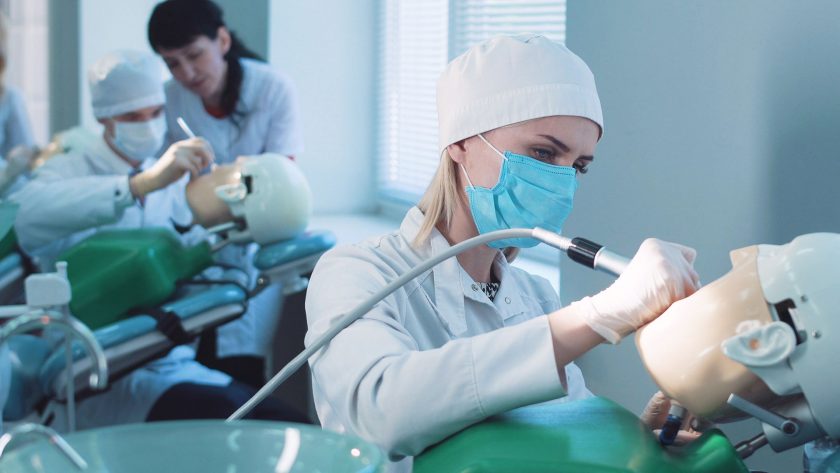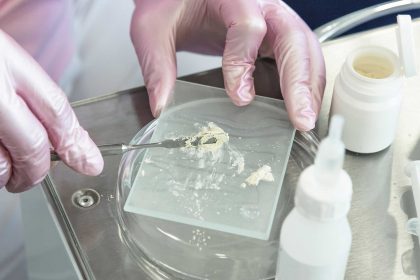If you’ve been working for a while as a dental assistant, you might start to wonder what’s next for your career. It takes time and education to become a Certified or Registered Dental Assistant, but what’s next after that? Is there any way to move up?
There are additional qualifications you can obtain, such as for certain restorative functions or assisting in specialized fields like anesthesiology or oral surgery. Or you might consider becoming a Registered Dental Hygienist. But if you’re ambitious and you really love dentistry, is it possible to transition from dental assisting to being an actual dentist?
Unfortunately there are no shortcuts between the two jobs. To become a dentist, a dental assistant must complete all the required dental coursework and education, with no credit for any previous training or experience. An assistant might have a bit of an advantage in dental school, however, as they’ll already be familiar with many of the concepts and techniques being taught.
To become a dentist, you will first need to obtain a bachelors degree if you don’t already have one, followed by four years of graduate school for your doctoral degree, and possibly additional schooling for any specializations, along with any post-doctoral training and residencies. After that, there can be a lot of work and time setting up and establishing your dental practice.
That’s a lot of years before the payoff
If you’re a dental assistant and you’re looking for something more challenging, becoming a dentist is an option. But you’ll want to seriously weigh the amount of time it will take you, how much it will cost, and how long it will take to recoup your investment.
If you’ve been working as a dental assistant for a while already, doing the math about how old you might be before you can even start your new career might scare you off.
In that case, what are your other options for moving beyond dental assisting?
Next steps for experienced dental assistants
Probably the most natural next step for experienced dental assistants is to become dental hygienists. Registered dental hygienists earn more money and have greater job autonomy on average than dental assistants. Certifications will vary by state, but you will need additional training in a two- to four-year program, some of which you might be able to test out of due to previous education and experience.
Another option is to become certified as an assistant in different specialties. There are plenty to choose from including prosthodontics, pediatrics, community dentistry, and more.
Experienced assistants might also consider becoming teachers for future assistants. Or they could be trained to work in a dental lab. Or if they have the personality and aptitude, they could work in sales for a wide variety of dental products.
How much does a dental assistant really know about being a dentist?
Much of what a dental assistant does in a dentist’s office is under the direct supervision of a dentist, who has the ultimate responsibility for what happens in the practice. But a certified or registered dental assistant has had plenty of training and lots of experience watching the dentist up close as they work.
Just as a hypothetical though experiment, how much dentistry would an experienced assistant actually be able to perform? Say there was a zombie apocalypse and all dentists in the world were eaten—I’m sure I’m not the only dental assistant to have had that fantasy—and we didn’t have to worry about legal issues and losing our licenses and all that good stuff.
Personally, there are some things I’d feel comfortable doing, and others not so much. If I had to step up for my desperate non-zombie patients, I’d be able to extract teeth. I could sew sutures. I could drill and fill cavities. I wouldn’t be comfortable with crowns and I couldn’t do implants, but I’d be able to make you a bridge.
And even during a zombie apocalypse — especially during a zombie apocalypse! — I would continue to stress to my patients the importance of oral hygiene. Remember to brush your teeth twice a day, and don’t forget to floss!




